AI Meets Physics: Exploring the Best 8 AI for Physics Tools
As AI tools continue to advance, new options are emerging that can provide meaningful assistance in physics research and education. A recent Reddit thread highlighted some of the most useful AI tools available today for physics applications, sparking an insightful discussion on how to leverage these technologies. In this article, we will review the top 8 AI tools mentioned in that viral Reddit conversation based on community feedback and votes.
Analyzing the core features and capabilities of each platform, we aim to provide physics students, educators, and researchers with a guide to selecting the best AI to augment their work. Whether you need support creating models, visualizing concepts, or checking calculations, read on to discover the AI that aligns with your needs. Let’s take a look at the best AI for physics.
Catalogs:
Part 1: Is there an AI for Physics?
Yes, there are now several AI tools available that are specifically designed to assist with various physics applications. In recent years, AI researchers have developed a range of platforms leveraging machine learning and natural language processing to provide helpful capabilities for physics students, educators, researchers, and hobbyists.
Some of the key tasks physics AI tools can perform include solving complex equations, explaining physics concepts, providing feedback on calculations, identifying errors in work, simulating models, analyzing data sets, generating visualizations, and more.
While they cannot wholly replace a rigorous understanding of foundational physics, these AI can automate routine tasks, offer tutoring support, and augment human insight with data-driven suggestions.
Part 2: Best AI for Physics Tool
The following are the top 8 best ai for physics problems:
1. Smodin
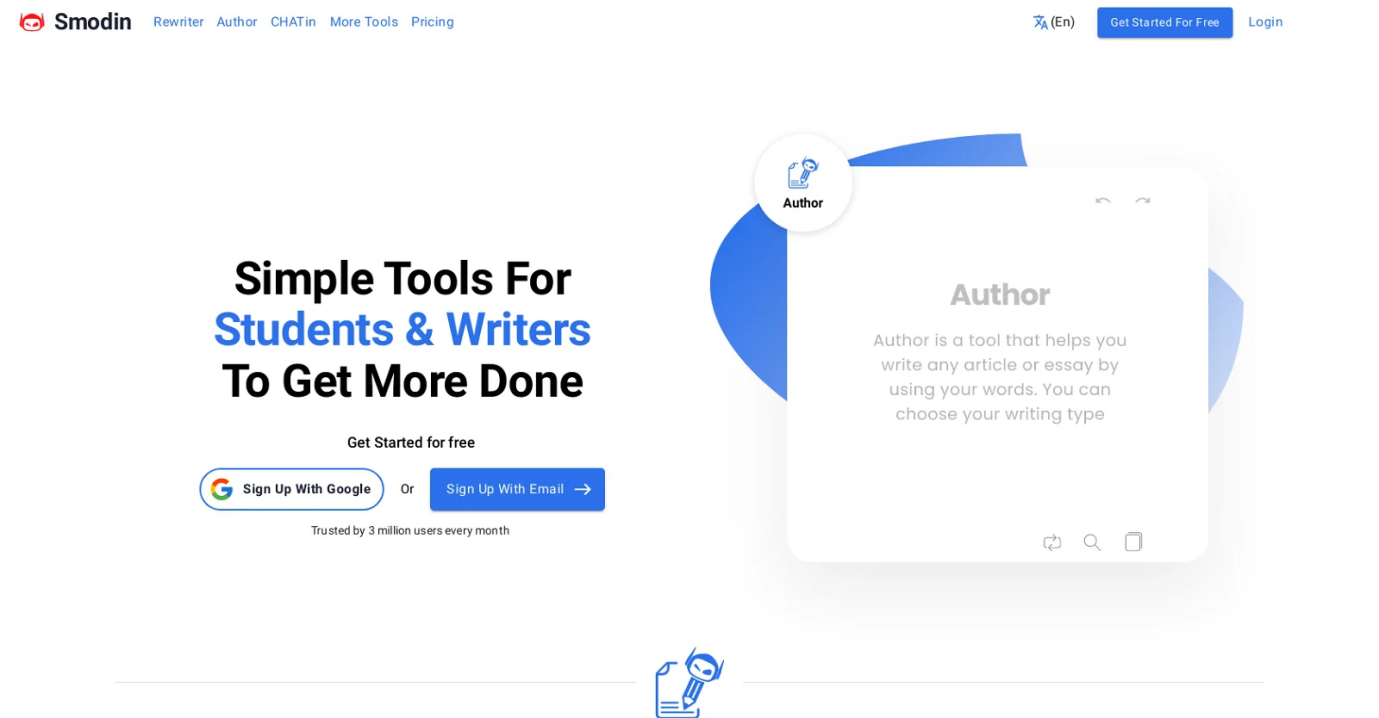
Smodin is an AI research assistant that aims to aid physics research through machine learning tools for comprehensive results, innovative ideas, detailed answers, and instant feedback. It claims physics knowledge across subjects and the ability to generate plagiarism-free content with professional quality 10x faster. It is the best ai for physics questions.
Pros
- Comprehensive, accurate research results
- Generates innovative ideas
- Provides detailed answers to questions
- Check work for plagiarism
Cons
- Accuracy of answers may vary
- Text generation quality inconsistent
2. Tenorshare AI Tool
Tenorshare AI PDF tool is a free online PDF summarization tool that leverages AI to reduce lengthy PDF documents down to concise summaries. It focuses on delivering speed, efficiency, accuracy, and easy understanding when condensing physics problem explanations or texts.
It is the best ai tool for physics as it can help you read and summarize any physics PDF book in minutes.
Key features include summarization accuracy via extracting key info, comprehensive coverage of concepts, clear language, and fast performance.
Features
- Accurate identification of important information
- Inclusion of key details and context
- Readable, concise generated text
- Rapid summarization speed
- User-friendly web interface
How to Use Tenorshare AI - PDF Tool
Step 1: Visit the website and upload your PDF files.
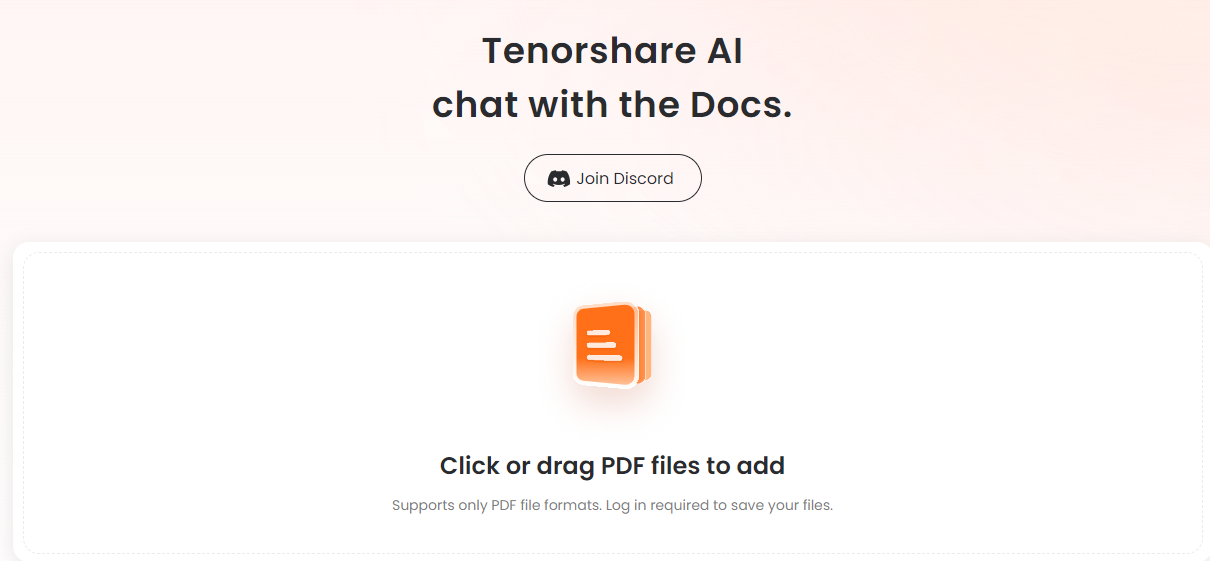
Step 2: Ask questions or request PDF summarization to analytical skills for ai and data science pdf.
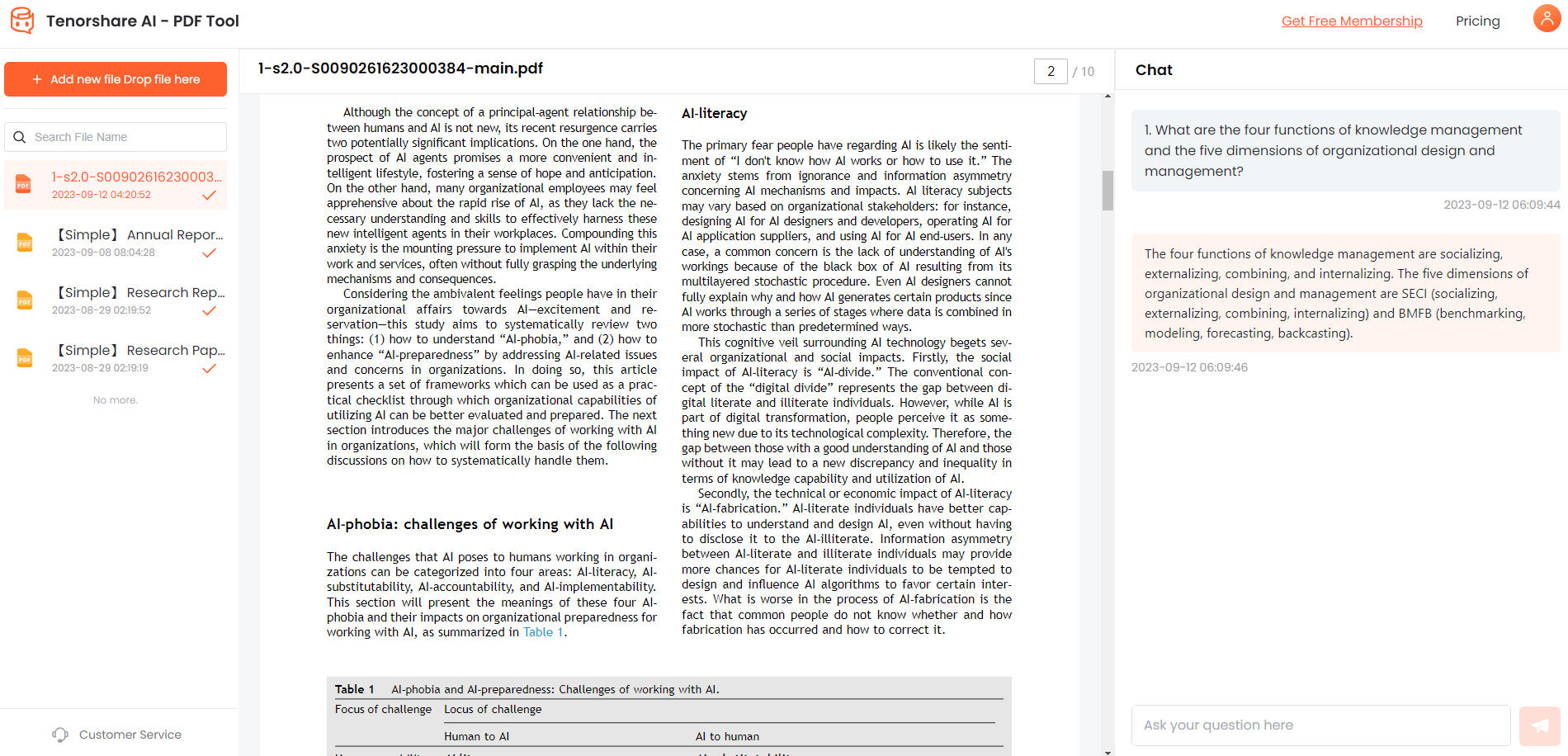
3. Sandbox – Physics Simulator
Sandbox Physics Simulator enables users to design and manipulate realistic physics simulations through an intuitive interface. Users can add objects like water, wood, rocks, and explosives, apply forces like gravity and explosion blasts, and observe realistic physical outcomes. The variety of materials and freeform building fuels creative experimentation.
Pros
- Intuitive, freeform building tools
- Realistic simulation of physics
- Variety of materials to experiment
- Encourages creative problem-solving
Cons
- Requires powerful hardware for best experience
- Currently limited selection of materials
4. Google Bard
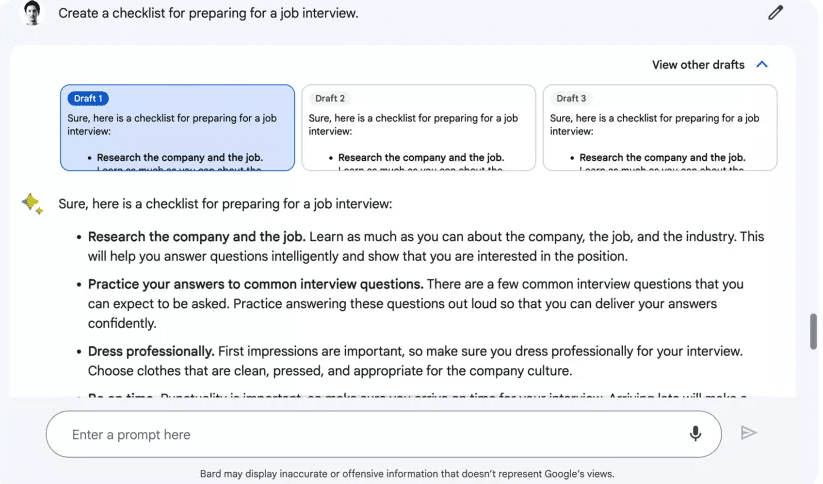
Google recently unveiled Bard, a new experimental conversational AI service aimed to provide helpful answers to questions across a wide range of topics. Still in very early stages, Bard represents Google's entry into the race to develop advanced chatbots rivaling standards like ChatGPT. Details remain limited pending its upcoming initial launch.
Pros
- Backed by Google's substantial AI experience and resources
- Likely to be deeply integrated into Google's ecosystem of products
- May advance state-of-the-art in conversational AI
Cons
- Currently unavailable publicly so functionality is untested
- Accuracy and capability details still unknown
5. Albert Einstein AI Tool
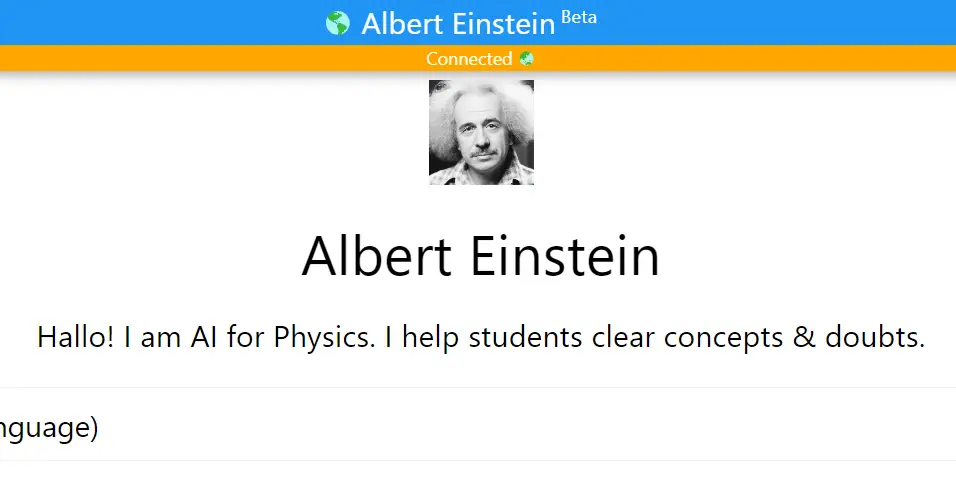
Albert Einstein AI is a physics tutoring tool students can access through messenger to get explanations on concepts, assistance with homework, and answers to questions. It aims to help clear up doubts on physics topics, though should not be viewed as a generator of falsehoods.
Pros
- Explains difficult physics concepts
- Provides homework assistance
- Answers student questions
Cons
- Interfaces only through messaging
- Should not fully rely on for accurate info
6. Tutor AI
TutorAI is an AI-powered physics tutoring platform that creates personalized educational experiences to explain complex concepts. It focuses on tailored problem sets illuminated through simulations and videos to transform intimidating physics topics into relatable knowledge.
Pros
- Personalized physics lessons
- Immersive multimedia content
- Demystifies complex concepts
- Adaptive to student needs
Cons
- More guidance may be needed
- Less robust than human tutor

7. Chegg
Chegg is an online education platform using AI to match physics homework queries with expert solutions. Key physics offerings include explanatory solutions, math problem solver, citations, practice tests and more to aid understanding.
Pros
- Quick access to expert guidance
- Step-by-step solution breakdowns
- Math helper for calculations
- Citation tools
Cons
- Paid subscription required for full access
- Potential for overreliance
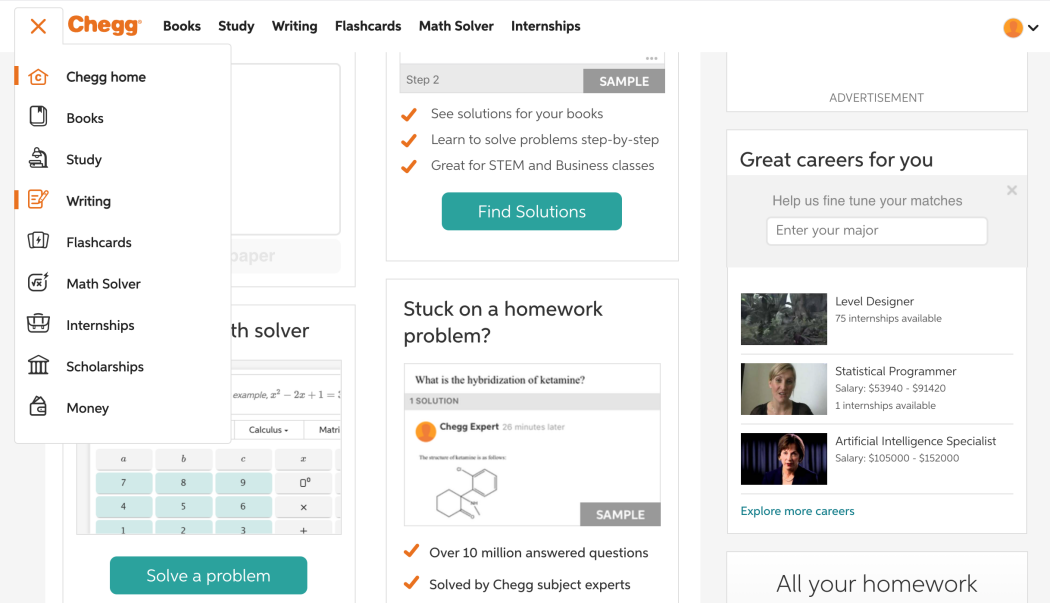
8. ArrayAssistant.ai
ArrayAssistant.ai leverages AI capabilities to boost productivity for those working with spreadsheets. It aims to provide helpful features like formula writing, data organization, text summarization, and task automation accessible from spreadsheet platforms. Targets professionals, students, and casual spreadsheet users.
Pros
- Enhances spreadsheet productivity
- Automates repetitive tasks
- Summarizes blocks of text
- Simplifies formula creation
Cons
- Requires compatible spreadsheet platform
- Analytics features may be limited

Part 3: Can ChatGPT Solve Physics Problems?
ChatGPT has demonstrated some ability to solve basic physics problems, though its skills are limited compared to more advanced AI systems designed specifically for scientific and mathematical reasoning.
On simpler high school or introductory undergraduate level physics problems, ChatGPT can often outline the principles involved, write equations, and solve for unknown variables. For example, if given a question asking to calculate the velocity of an object after 5 seconds under constant acceleration, ChatGPT can recall the kinematic equations, set up the equation v = v0 + at, plug in numbers, and solve to find the velocity.
Part 4: FAQ about Best AI for Physics
1. Is ChatGPT good at physics?
ChatGPT has demonstrated some promising physics capabilities, though there are mixed assessments regarding its proficiency.
In certain areas, like explaining concepts or walking through problems, ChatGPT can provide helpful information. However, the accuracy and depth of its knowledge of physics remain limited compared to human experts. As it continues evolving, ChatGPT may become an increasingly useful physics assistant.
2. Which AI is best for solving physics problems?
Based on currently available information, Smodin and Tenorshare AI PDF tool appear to be two leading options for leveraging AI to help solve physics problems. Smodin claims to provide detailed physics answers and feedback, while Tenorshare summarizes lengthy written problems into concise overviews. Comparing strengths across areas like computation, conceptual clarity and speed, the right tool depends on the specific needs and problems at hand.
Final Thoughts
The rapid evolution of AI now provides physics students and researchers with a robust set of tools to augment their work. As highlighted in our analysis, leading options like Tenorshare AI PDF tool , Sandbox Physics Simulator, and Smodin excel at key physics capabilities ranging from problem comprehension to visualization.
While questions remain regarding creative limits, with prudent usage as guided supplements rather than substitutes, these AI have demonstrated the potential to quicken research, further customization, and, most importantly, spark human insight that propels physics forward.
Evaluating both promises and limitations of the tools profiled, it is an exciting frontier ahead indeed for the intersection of physics and AI in both academia and industry.
You Might Also Like
- Visual Harmony: Exploring the Art of Free Online PDF Image Insertion
- Breaking Language Barriers: The Top 9 AI PDF Translator Tools Unveiled
- In-Depth ChatPDF Review 2026: Real Experience with Features, Pricing & Safety
- Elevate Your Editing Experience: A Deep Dive into PDF to Google Docs Conversion
- Useful! Free Smodin Physics AI Homework Solver And More AI Helper
- 150+ Physics Captions for Instagram to Celebrate the Wonders of Science

